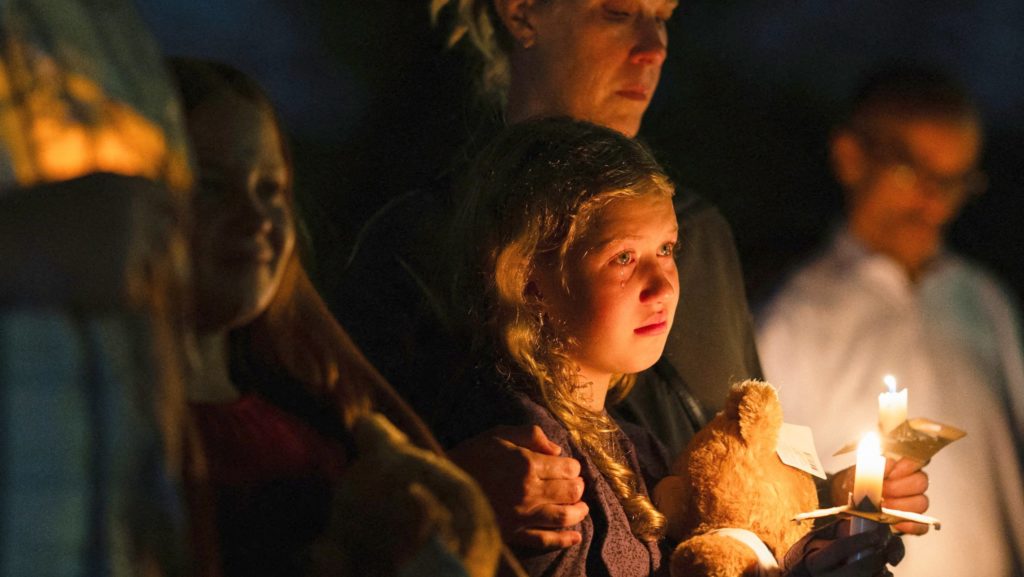I know nothing about how to handle grief — which anyone who has seen me at my parents’ funerals, and those for two brothers and one sister, can verify. So, I do not have any advice to offer the parents of the two beautiful children who were murdered inside a church in Minneapolis.
I also don’t have any insights worth the paper it costs to print them on why this happened, or what it means for society. There are other sources for that, even if they don’t come to any satisfactory conclusions.
But many of us can probably think of a child, grandchild, niece, or nephew who they’ve seen fidget in a pew at a school Mass. And that’s what makes this tragedy particularly heartwrenching for Catholics in this country.
The funeral for a child is different. Attempts to console parents are almost always inadequate and ineffectual. The funeral may last only a day, but the memory of the loss lasts a lifetime. My grandmother lost her oldest child to pneumonia when he was only about 6 years old. That happened almost 50 years before I was born, and I know she grieved over this loss every day.
For now, in the immediate aftermath of an evil act that has taken young lives, prayers really are the only option. Strangely, we’ve witnessed the idea of praying for these families be openly dismissed and denigrated by elected officials and talking heads as insufficient and inappropriate. I believe this is because a lot of people see prayer as a magic wish that must come true. In reality, all prayers are answered, but in some cases, the answer is no. Jesus, asking God the Father for reprieve in the Garden at Gethsemane, got a similar answer.
When grief comes knocking at my door, as it does from time to time, no matter how hard I try to keep it at bay, I run to Scripture and I seek solace in formidable minds and thinkers. One of those earthly minds belongs to Peter Kreeft. He is an amazing professor of philosophy and a man of deep faith in God and in his Church. Inspired by his writings years ago, I reached out to him, hoping he would agree to be interviewed. I received a double shock that he personally responded to my request but gracefully declined to be interviewed. Of course, he provided a thorough and thoughtful reason, which could be distilled down to his innate humility and reluctance to be the center of attention.
But I still had his books to console me, and one of those books that I thought about immediately after hearing of the evil that took place in Minnesota was Kreeft’s “Making Sense out of Suffering” (St. Anthony Messenger Press, $17.95). I bought it almost eight years ago when I was facing a family crisis of my own. The book was a godsend, though my level of pain does not compare with that of the parents of these children.
Suffering is our natural state, and it is one cudgel atheists whip out from their belts to bash the seemingly insane notion of a good and merciful God. But as Kreeft argues so concisely in his book, “We started it.” It is through our sin that evil enters into the world, and evil, as he also elucidates so beautifully in the book, is a kind of “proof” for the existence of God. How do we know what is evil unless we know what is good?
This is still not going to help the parents of these murdered children. That pain goes so deep. But if and when these grieving parents may muster the strength to pick up a book from the weight of their grief, I pray that book is Kreeft’s. When they do, I hope they will read the second paragraph on Page 124: “Death will be swallowed up in resurrection, and sin in atonement. Then suffering will cease. Once Messiah conquers sin and death, suffering will be a cinch. But it may take some time. We are in a long story after all.”
When it comes to suffering, we are all in it for the duration, so we must continue to offer our prayers. And yes, we can pray for the pain to go away, but whatever the answer we get, we know it is all about someone else’s will.

